What did the delegates think of the SENSE 2018 Conference? We caught up with some of them to find out
Kate Mc Intyre (University Medical Centre Groningen)
 I thoroughly enjoyed the conference and was especially pleased with how much time was allotted to meeting up and chatting with other professionals. I tend to get over-tired at conferences and the breaks gave me time to recover while catching up with people I knew already and getting to know new people.
I thoroughly enjoyed the conference and was especially pleased with how much time was allotted to meeting up and chatting with other professionals. I tend to get over-tired at conferences and the breaks gave me time to recover while catching up with people I knew already and getting to know new people.
My biggest struggle was choosing which presentations to attend; I was often torn between going to what I felt I ‘should’ see (ie, those that spoke very directly to my current work) versus attending those that lay outside my current work but sparked an interest.
I think I struck a good balance in the end. Stephen Johnston’s ‘The impossible blog’ workshop on Friday seemed outside my current field of work but intrigued me. The workshop challenged us to comb through reams of technical information to find the points relevant to a general audience, and participating made me realize that it is a skill I actually use quite often. I also enjoyed Maria Sherwood-Smith’s talk on ‘Outreach and research communication in English: opportunities for language professionals’. Maria touched on the same theme of how to take abstract technical information and hone it to a message appropriate for a public audience, and I found her examples of how students worked through that process in her course especially enlightening.
On the closer-to-home front, I found the panel discussion moderated by Valerie Matarese about ‘Invasive species: language versus subject specialists in biomedical editing and translation’ enlightening. In it, Anne Murray, Marije de Jager and Emma Goldsmith shared their career paths and experiences on the road to becoming biomedical editors/translators. The discussion revealed, to me at least, commonalities behind what makes good language professionals: a curious mind, a ragged tenacity, a flexible approach and a willingness to take on new challenges. The theme of commonality came back again in Sarah Griffin-Mason’s closing plenary talk ‘Trends in translating and interpreting to 2050’ when she unabashedly pointed out that all the language professionals in the room were ‘the ones who get it’, the three kids in the class who don’t need to be taught the lesson a second time.
If there was one talk I wish I had been able to attend it was Kenneth Quek’s ‘Chinglish as she is writ: on the uses and abuses of English by native Chinese speakers’. I work with increasing numbers of native Chinese speakers, and I respect their tenacious assault on their especially hard path up English mountain, so I hope I get to see Kenneth’s talk at another conference. I also enjoyed Lloyd Bingham’s ‘Dealing with Dunglish – and other source-language interference’. It was a good framing of all the Dunglish I see on daily basis and a good reminder to not let it slide when I see it. It also taught me that ‘beamer’, a word that came into use after I moved to the Netherlands, is not the UK English word for a projector.
All in all I enjoyed the conference immensely and thank the organizers for all their hard work in putting it together.
(Kate is departmental editor at the Department of Genetics at the UMCG and can also be found on Twitter.)
Enid Tomkinson
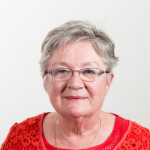 The Golden Tulip Hotel Central in Den Bosch was an ideal location for the SENSE 2018 Conference, and I enjoyed the guided tour of Den Bosch on the Saturday morning, where we saw the magnificent St John’s Cathedral.
The Golden Tulip Hotel Central in Den Bosch was an ideal location for the SENSE 2018 Conference, and I enjoyed the guided tour of Den Bosch on the Saturday morning, where we saw the magnificent St John’s Cathedral.
Later in the day, I attended Charles Frink’s presentation 'Disrupting the inheritance of poor writing habits: an alternative approach to editing and teaching writing (in the health-related sciences)', in which he mentioned that 500,000 new academic articles are published each year. Apparently, the originality of the research is dubious from the perspective of journal editors. His suggested solution was to focus on core concepts, then support them with details. Clarity was the essence of his presentation.
Nigel Saych’s presentation ‘“…divided by a common language”: cultural, topical and geographical Englishes’ was enlightening. He discussed the words lavatory and toilet, and pointed out that Geoffrey Chaucer and Thomas Crapper had contributed to lavatorial English, which I found rather amusing.
Carol Norris’ presentation ‘Developing a modern, journal-acceptable manuscript style’ focused on getting to the point as quickly as possible, which I believe is essential. I also enjoyed Jackie Senior’s presentation 'International science needs editors' and agree wholeheartedly with her opinion that international science needs English editors. In the same session, Joy Burrough-Boenisch focused on using the SENSE Guidelines for Proofreading Student Texts as a map to edit English-language doctoral theses in the Netherlands. Her sound advice was that they can help you achieve transparency in editing a thesis.
In 'Outreach and research communication in English: opportunities for language professionals' Maria Sherwood-Smith made us aware that research communication to non-specialists is now key in many areas. She pointed out that more courses on research communication are necessary for early career researchers.
The conference ended with Sarah Griffin-Mason’s talk on ‘Trends in Translating and Interpreting to 2050’. She told us that humans are more important than machines, and gave us hints as to how we can get this argument across to our clients.
The picturesque boat trip on the Binnendieze was a perfect end to the conference!
(Enid can be found on LinkedIn.)
Lloyd Bingham (Capital Translations)

I only joined SENSE earlier this year, having seen the conference advertised on social media. It was great to find a network that focuses so heavily on skills for my target language – as translation events traditionally focus on source-language skills – and one based in the Netherlands too, just a 50-minute flight away.
I was impressed with the conference on several counts. First, the venue and host city. Den Bosch is very charming indeed, and the hotel itself was pleasant and conveniently located. Second, the programme. I appreciate that SENSE is geared towards English-language editors, but for into-English translators like myself, the sessions were superb and highly focused on improving my target-language skills, something which translation-specific conferences sometimes lack (surprisingly enough). The range of speakers was excellent. It was rather humbling to be counted amongst such experienced speakers, who more than knew their onions, and I was pleased that, with a mere seven years of experience, I could contribute too. Third, the general organization. It must have taken a great amount of effort to put the event together, especially for a relatively small association. I knew very few people in SENSE, so it was a wonderful opportunity to meet and converse with many of its members, whether long-established or fellow newbies. This, coupled with the peer-to-peer structure as opposed to top-down, created a gezellig atmosphere. I look forward to the next conference!
(Lloyd is the owner of Capital Translations.)
Sue Anderson (Stewart Translations)
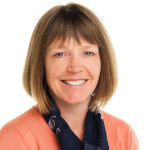
The conference was a great match for me personally. I felt at home because it mirrored what I do as a translator and editor working with Dutch and English. Specifically, I liked the focus on honing language skills rather than on social media use, marketing, running a business, etc. The SENSE team were very welcoming, always making sure people were happy and enjoying themselves. And it was lovely to finally meet some faces I had worked with virtually and to meet new colleagues too.
If SENSE have another conference, you can count me in!
(Sue can be found on LinkedIn and Twitter.)
Cherry Shelton (Shelton Translation)
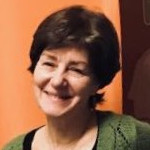 I heard about the SENSE conference via Twitter and decided to attend as it seemed a good opportunity to meet up with other English-language editors and translators in this part of Europe.
I heard about the SENSE conference via Twitter and decided to attend as it seemed a good opportunity to meet up with other English-language editors and translators in this part of Europe.
The first pleasant surprise was Den Bosch, which is a charming city, and I wish I had had more time to explore. At least I got to enjoy the guided tour on the Saturday morning.
Saturday’s opening session with presenter Jeremy Gardner provided some entertaining insights into EU English and raised a few questions about the future of English in the EU after Brexit and the ensuing lack of British translators. I also found Iris Schrijver’s talk ‘Translation quality (assessment): insights from Translation Studies in the quest for the holy grail?’ very interesting – a pleasant change from some academics’ presentations, which can be somewhat inaccessible for those of us working outside universities.
As a translator, not an editor, not all the sessions were relevant to my work but this allowed me more time for networking. It was great to meet colleagues from all over Europe and I especially welcomed the collaboration between the various professional associations.
On Sunday morning I found the workshop with Tony Parr and Marcel Lemmens on ‘Identifying and rectifying translatorese’ very worthwhile. I don’t speak Dutch so it was particularly interesting to compare my changes to the English translation with suggestions made by colleagues who also understood the source text.
The conference finished on a high with a very upbeat talk by Sarah Griffin-Mason, the Chair of ITI. It was inspiring to hear her views on the changing translation industry and the ITI’s plans, when so many translators are all doom and gloom when it comes to the future of our profession.
The whole weekend was extremely well organized and I found it both worthwhile and enjoyable and hope to attend the next conference too.
Thank you SENSE!
Terry Ezra
 I wasn’t overly enthusiastic about signing up for the SENSE conference – I just thought it was something I ‘should’ do for ‘continuing professional development’. By the time I left, I was on a high and even felt that I’d made new friends.
I wasn’t overly enthusiastic about signing up for the SENSE conference – I just thought it was something I ‘should’ do for ‘continuing professional development’. By the time I left, I was on a high and even felt that I’d made new friends.
Attending such a conference is not just a question of learning things that you can apply to your work (translation in my case), or dealing with clients, or, indeed, of following developments in the industry, but of something more subtle, of orienteering yourself in the industry, of discovering what you already know or don’t know in relation to others. I’d allowed myself to become quite isolated as a translator and my only contact with other English-language professionals until now had largely been combative; revising or being revised by other (fairly poor) translators and having to deal with non-native project managers who think I’m being overly picky or subjective, while all the time very much aware of my own deficiencies. The SENSE conference was like the proverbial warm bath, and I felt genuine respect and curiosity between professionals at different stages in their careers. ‘Who’d have thought?’ I tweeted. ‘Translators can be good company!’
Nigel Harwood (University of Sheffield)
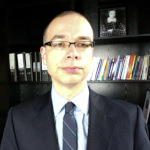 This was my first SENSE conference, and I enjoyed it very much. The feedback on my abstract was thoughtful, and there was a sense the peer review process had been done rigorously but fairly.
This was my first SENSE conference, and I enjoyed it very much. The feedback on my abstract was thoughtful, and there was a sense the peer review process had been done rigorously but fairly.
The conference itself was very well organized, with helpful directions to the venue available on the SENSE website. The venue and facilities were excellent and the conference fee was very reasonable.
I enjoyed the friendly atmosphere and found the conference was stimulating. I had many helpful and enlightening conversations with delegates about editing in the Netherlands and other countries. I learned a lot, made some very valuable contacts and left with fond memories and no regrets about attending!
Jan Klerkx
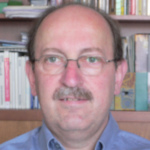
Being mostly in the business of editing medical and health science research papers, I attended the talks by Charles Frink, Valerie Matarese and Lloyd Bingham on Saturday. Charles reminded us that when editing research papers and teaching students how to write them, it is not only correct grammar and spelling that is important, but for writers to think of their audience and make sure they get their message across. He provided us with a clear recipe for achieving that.
Valerie Matarese’s well-structured talk led us systematically through the problems that make scientific texts so hard to read and explained their origins. The main cause of many problems appears to be that scientists follow the example provided by existing articles, which means that unnecessarily complex languages are perpetuated. It’s up to us language professionals to break this vicious cycle and point our clients and students in the right direction, while recognizing that scientific writing may sometimes deviate from ‘standard English’ without apparently compromising communication.
Lloyd Bingham’s entertaining talk focused on the misuse of English words, which he referred to as Dunglish, although that term is usually reserved for the interference from Dutch grammatical and syntactic structures that crop up when Dutch people try to write in English. Nevertheless, the examples he presented were a healthy reminder that words can change their meaning when they cross national borders.
After the tea-break, I attended the panel discussion featuring Anne Murray, Marije de Jager and Emma Goldsmith, all translators and editors of medical texts. They discussed whether a medical translator/editor should preferably have a background in medicine and turn to translation/editing afterwards (as Emma did) or be trained as a translator and work their way into the subject matter (as Anne and Marije did). In both cases, the person might be regarded as an ‘invasive species’ trespassing on a field that wasn’t originally their own. Unsurprisingly, no definitive answer was obtained, but the very fact that three people from very different backgrounds had managed to build a lasting career in medical translation and editing would suggest that trespassers need not always be prosecuted.
On Sunday morning, Tony Parr and Marcel Lemmens put us to work immediately, identifying translatorese in the English version of a Dutch brochure on flu vaccination. As usual, their hands-on approach led to very lively discussions as to what constitutes translatorese.
(Jan can be found on LinkedIn.)
Kees Engels (Livewords translation agency)
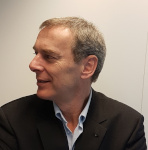 We translators are usually happiest when working alone, the one exception being when we meet each other at a conference. I have only been to a few conferences, but SENSE 2018 was the best so far. Excellent choice of subject matter and experts to present it. I will gladly join this society (if they will have me, but you know what Groucho Marx said about that...).
We translators are usually happiest when working alone, the one exception being when we meet each other at a conference. I have only been to a few conferences, but SENSE 2018 was the best so far. Excellent choice of subject matter and experts to present it. I will gladly join this society (if they will have me, but you know what Groucho Marx said about that...).
(Kees can be found on LinkedIn.)